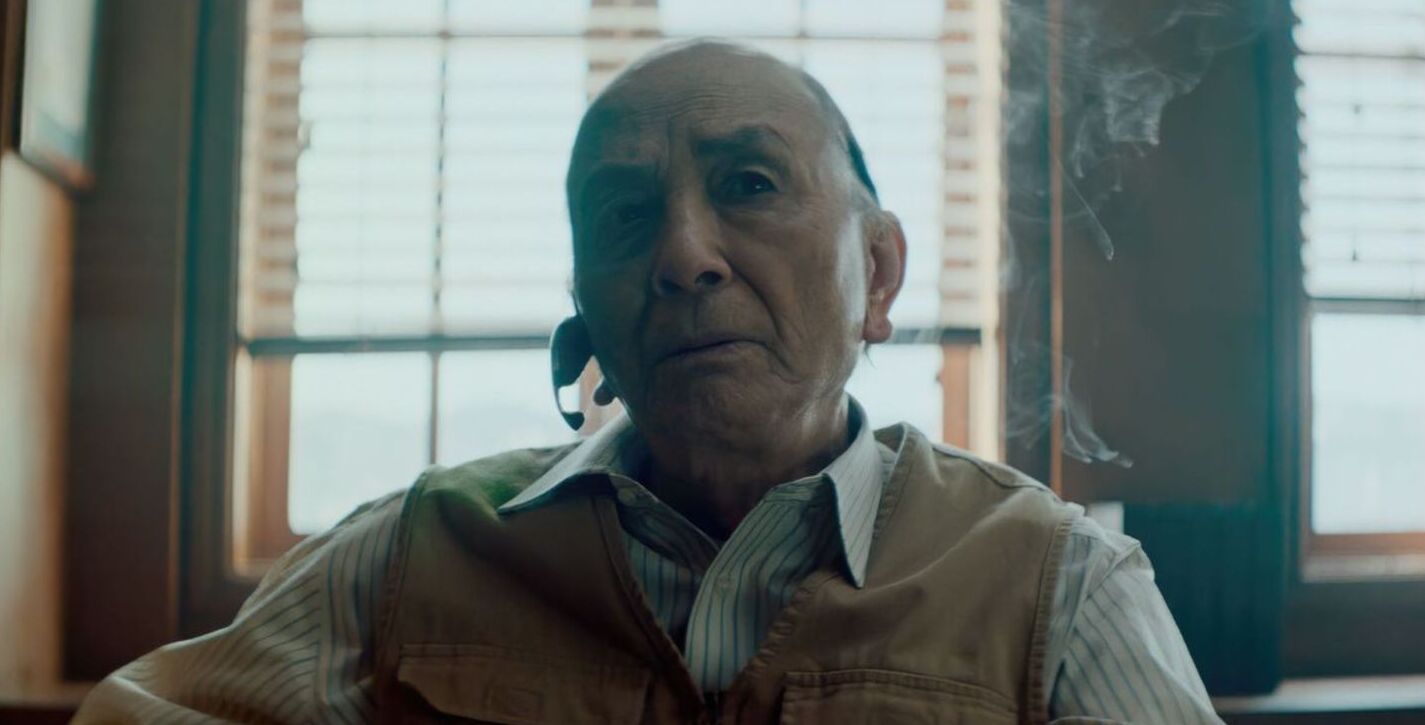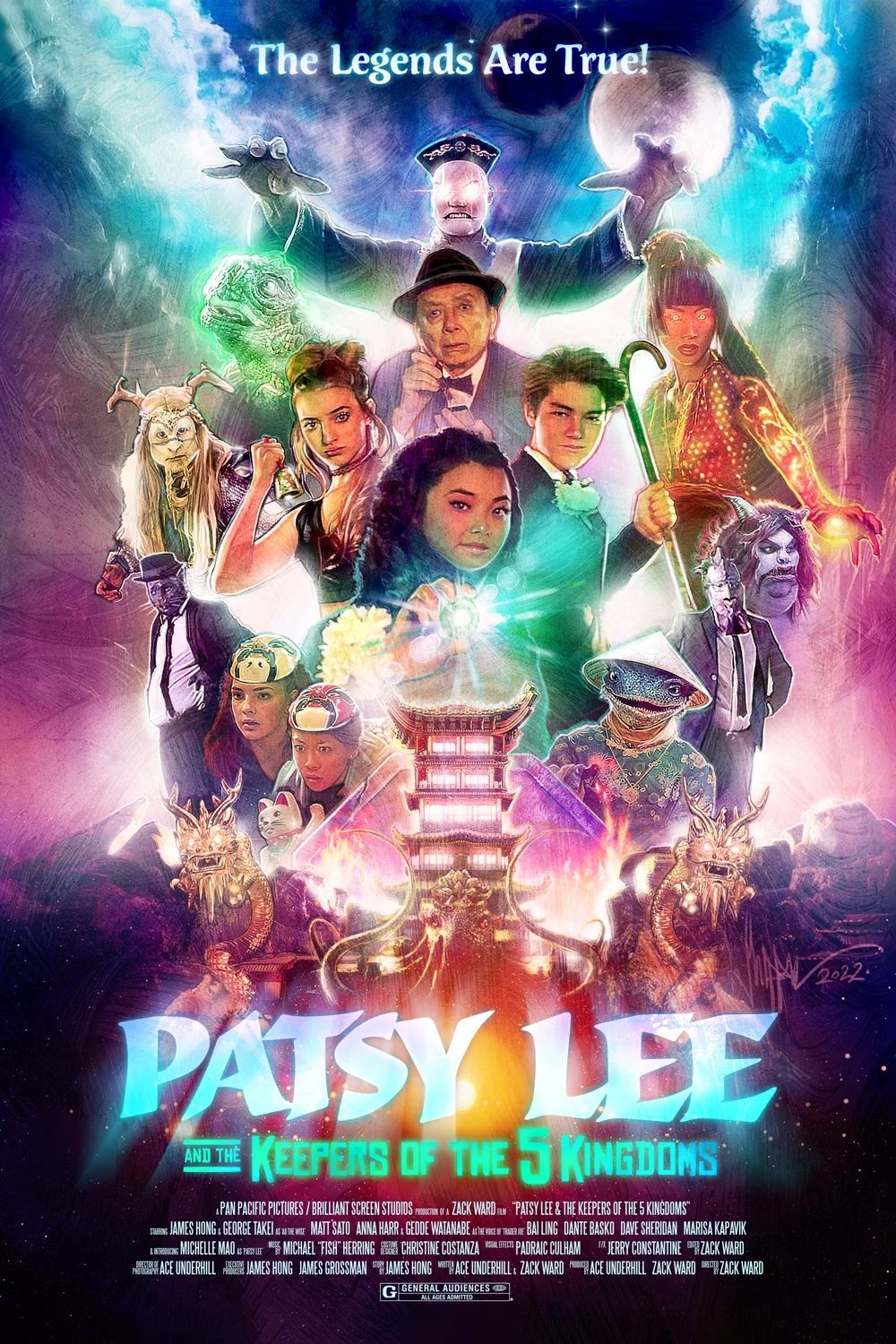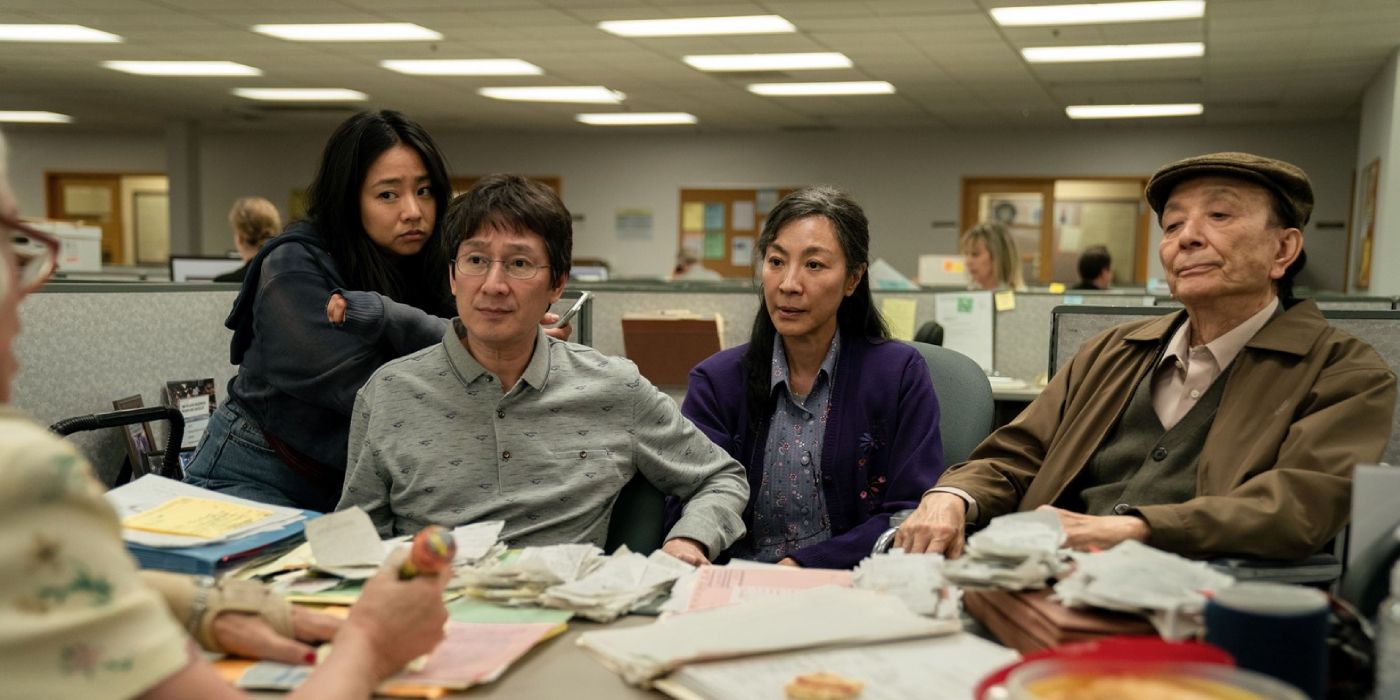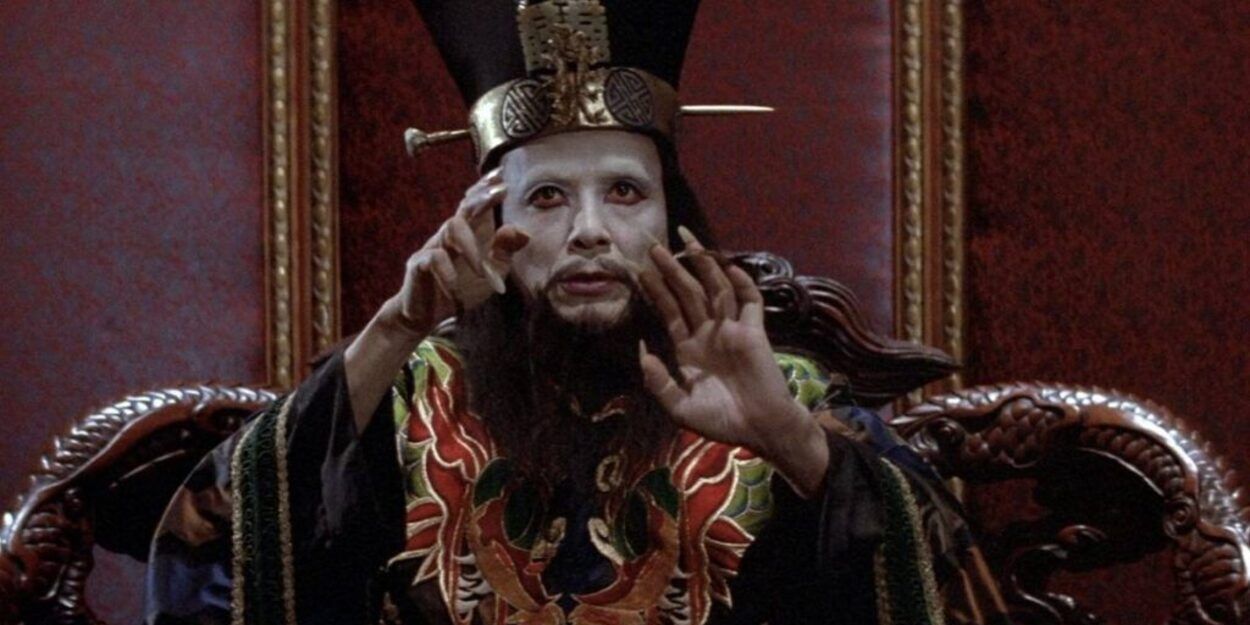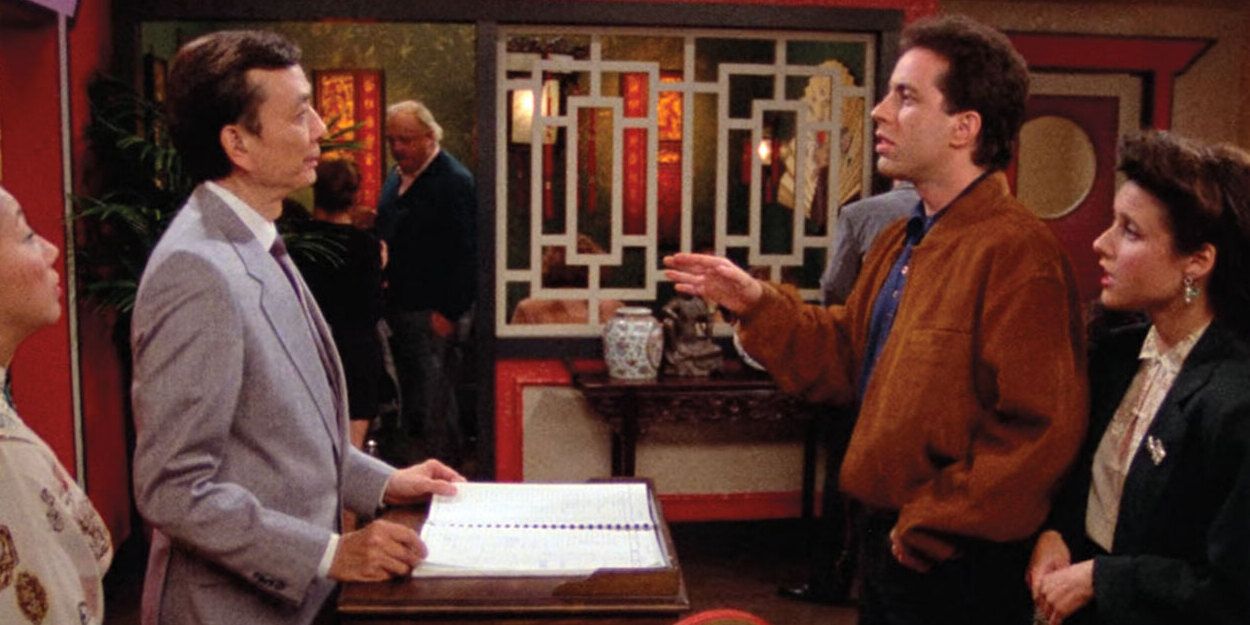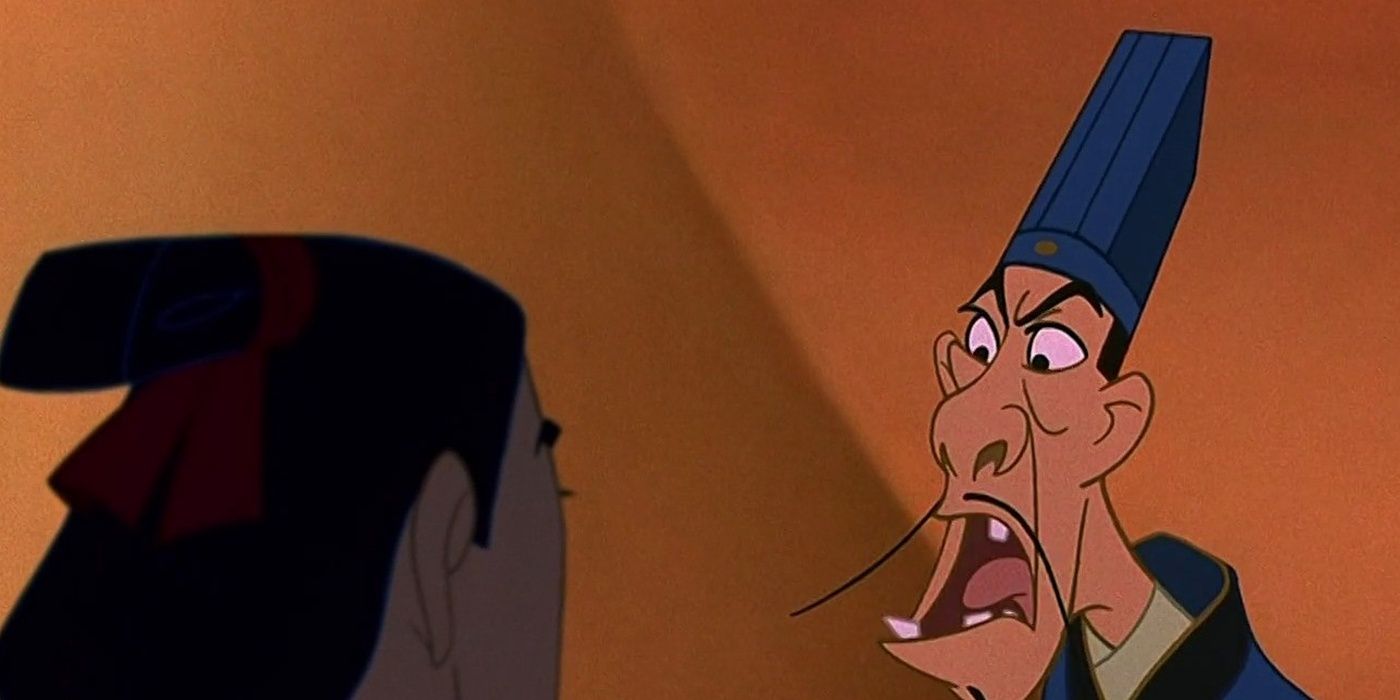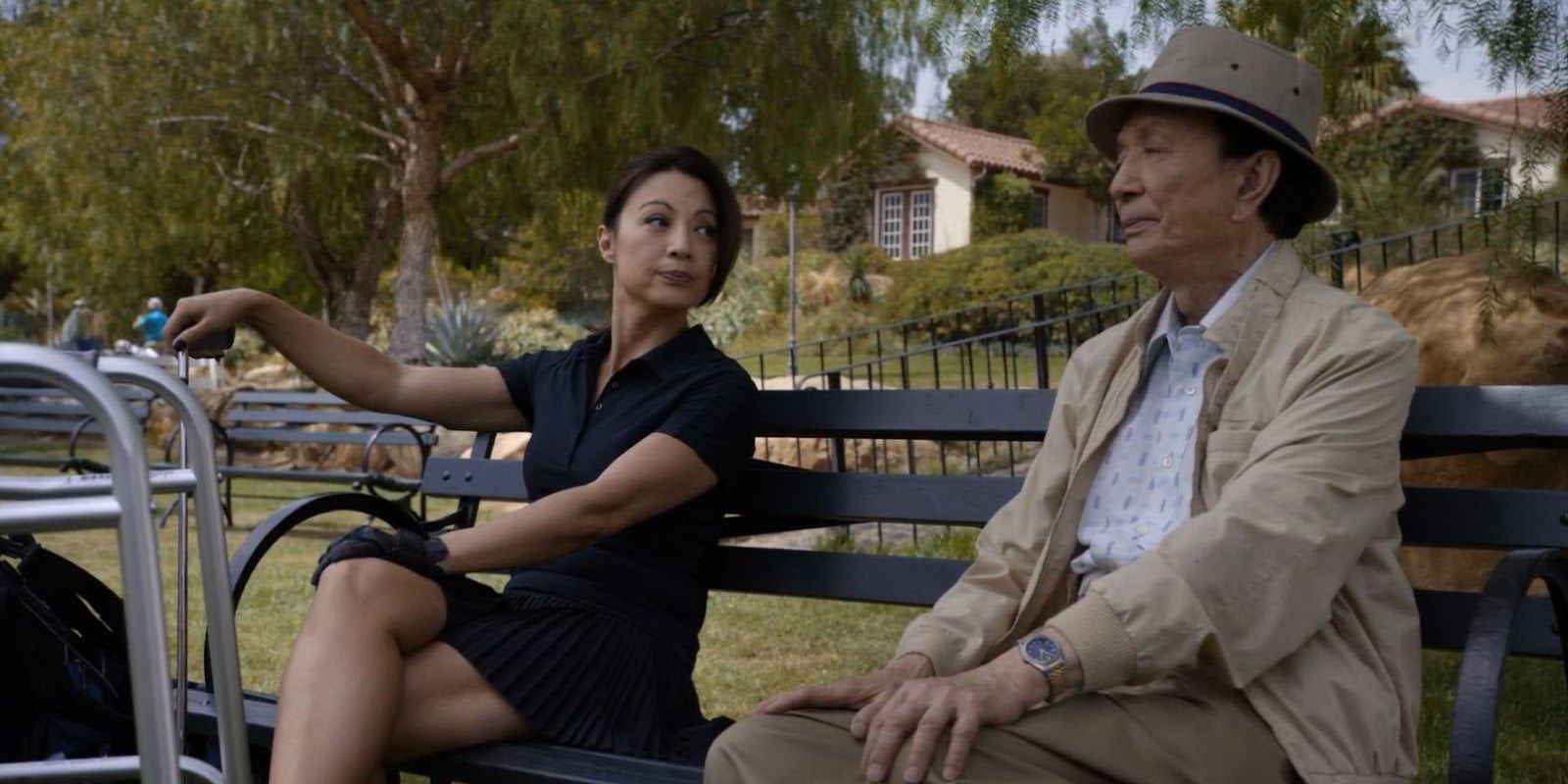After working for 70 years in Hollywood, with over 600 credited acting roles in television and film, James Hong is showing no signs of slowing down any time soon. From a memorable role as Gong-Gong in the critically-acclaimed multiverse film Everything Everywhere All at Once, which has earned an impressive number of Academy Awards including Best Picture, to receiving a star on the Hollywood Walk of Fame, Hong’s legacy is more prominent and celebrated than ever. Hong is set to star in the family-friendly fantasy film Patsy Lee & the Keepers of the 5 Kingdoms, based on a story he wrote, guiding audiences into different aspects of ancient Chinese mythology.
In an exclusive interview with CBR, James Hong revealed the origins and inspirations behind Patsy Lee & the Keepers of the 5 Kingdoms, reflected on his pivotal role in Everything Everywhere All at Once, and recalled fan-favorite moments from his extraordinary career.
CBR: James, you wrote Patsy Lee & the Keepers of the 5 Kingdoms' story. How did your idea of this approach to Chinese mythology come about?
James Hong: Long ago, when I was child, my mother would recite [stories] from fairytale comic books. They [were] called daishu -- dai meant "[to] read aloud" and shu meant "tales" – and that rhythm got into my soul because she would read them out loud, which is a custom in China. They tend to recite what they’re reading like poetry. At this age, I [wanted] to do something with that rhythm in my head. I got the story idea of doing something with an American teenager. I would be her grandfather and she somehow got us into trouble, and we escape to the old Chinese kingdoms. She wants to get back, but we have to conquer the evil forces in the kingdom.
That led to all those tales my mother would tell me. I incorporated some of them. Obviously, you can't record centuries of tales! That's what Patsy Lee & Keepers of the 5 Kingdoms is all about. It's about a hidden imaginary kingdom in Chinese history, sort of like in [a] comic book, with how the kids fare with it, overcome it and return home.
What were some specific Chinese fairy tales that you wanted to share with audiences that might not necessarily know them outside of China?
All Men Are Brothers by Pearl Buck. She took that book, which was written in ancient Chinese, and she translated them into the fables that are [in] this book. Some of them I remembered and some of them [I didn't], but that book has a lot of good adventures and I think it could be the basis for a series. You have the general audience, and especially here in America, [many] don't know about those old [stories]. Obviously, they're good -- otherwise, they wouldn't have lasted all these years! [laughs]
How was it working with director Zack Ward on this and having Michelle Mao play your granddaughter, Patsy?
Everybody I worked with in cast was outstanding. The young people that we chose were all very talented. As you can see in the movie, Patsy Lee is so lovable, but we're at odds. That's the whole story. The granddaughter and grandfather are not getting along because of the [generational gap] until we get lost in this fairytale land. Things happen, we need each other's help, and in doing so, we’'e united and begin to understand each other's needs. It all ends up very beautifully, as most tales from those old days do.
The whole cast is great, and Matt Sato is so wonderful. I keep laughing whenever I see the scene when he sees the monster for the first time. We have to learn how to love and conquer [what] we dislike. That's the adventure, it's a Disney or Goonies-esque thing where you have to go on the journey and find each other.
Speaking of movies about familial love, that's what Everything Everywhere All at Once is all about. How was it reading that script from Daniels for the first time and seeing how wild that story is?
It's not like any other script, and you can't really describe what will happen on the screen when you [read it]. You can't comprehend exactly what they wanted because even after seeing the movie, I still don't really know what they wanted. [laughs] You can feel the tightness of the relationships in the movie but in the script it's hard to [understand] what they're talking about.
Was there ever a moment where it clicked for you what your role in Everything Everywhere All at Once was?
As an actor, I read that Gong-Gong had multiple personalities.He could become the villain, mainly because of what he wants for his daughter. The inner thoughts that I had as [both a] father and grandfather were, "What are the thoughts in the back of [Gong-Gong's] mind in this modern society?" It comes across that way, I think, you can see that he doesn't know exactly what's going on.
There were even shots [where I] started to figure things out, but they took them out, they left Gong-Gong befuddled. The film jumps into his other personalities, but Gong-Gong the character doesn’t quite understand what is happening in the movie or [with] his daughter. That’s what makes the movie.
You’ve worked with some of the best directors in the game. Ridley Scott, John Carpenter, the Daniels.
Robert Wise and the director of the original M*A*S*H*, Robert Altman. He came to town after he did that documentary on James Dean, [The James Dean Story], and I saw [his] potential after seeing [the] film. I went to his office and asked for permission to sit and listen to him and help. I sat there for a couple of weeks listening to them prepare for the next vehicle that they had, and it was very interesting. I was in the dark, and it was very mesmerizing to be in the first project he did after his documentary about James Dean.
He had that wonderful way on set with the actors, he would say "Let's rehearse the scene!" and wouldn't tell you anything. I came prepared, I knew what was in the script and what the character was about, and then we walked through the whole set doing whatever we thought. He didn't do much criticizing, he gave a few pointers, but moved the cameras into certain positions and told the crew what to do. I, an actor, stayed in that mode. He didn't restrict you to certain things he had in his own mind, he let the actors carry the scene through their characters which pretty much stuck to the final take.
His method was very different from [Roman] Polanski’s method. Polanski wants you to be in certain positions and certain moods. If he doesn’t get it, he does multiple takes until he gets what he wants. Robert Altman has a freestyle, more or less, and both styles worked for the artist.
I grew up watching Big Trouble in Little China. How was it working with John Carpenter and playing the role of David Lo Pan?
As I came into work one day, he was there, and I walked in with him, and it was that underground tunnel where the monsters come out of, with the water running. In those days, they didn't have digitized sets like they have now, so he built that tunnel like it went forever underground. Each arch grew smaller and smaller into the distance. When I walked down it, I said, "Wow, this looks so real! I can imagine it going on forever. This is a beautiful set, Mr. Carpenter. You should get an award for that one." He looked at me, and I’ll always remember this, [he] went, “So should you, James." That was the faith he had in me for playing Lo Pan.
Of course, Lo Pan was in the script when I read it and went in to audition. I thought "Maybe I don't fit the role?" But he saw something in me that was David Lo Pan. I got into that character, with the costume, makeup and fingernails and I really became Lo Pan. The love for the green-eyed girl, the obsession of divine love and finding that girl to marry her, and all of a sudden he's got two of them . He’s very confused. [laughs]
He and I had so much fun. When Kim Cattrall was bound, I was behind her and felt like doing something, so I went up and tickled her on the chin. That became a very good moment in the movie. [Lo Pan] didn't really do anything to kill anybody. The other guys might've shot their guns and knocked each other through windows, but I didn't really kill anybody.
You had really cut your teeth working on television on shows like Hawaii Five-O, Cannon and Kung Fu. How was it working in Hollywood in the 60s and 70s, and what was the industry like for Asian Americans at the time?
Well, the 60s and 70s [were] already [10 to 20] years into my career because I started in 1953 when I first came to Hollywood. A writer got me into a Groucho Marx show, [You Bet Your Life], and that was the start of my career. My first movie was with Clark Gable and then with William Holden in Love Is a Many-Splendored Thing, and then I did one with John Wayne. They came in right after another, and it was a great opening for my career in the 1950s. As we progressed, I averaged around 10 movie and TV roles a year. I just took everything and did them.
Benson Fong, one of my old colleagues, said to another friend, "I really admire James Hong for taking on all the roles." He was very selective. He didn't want to do any role that was not up to his standards. Being a young actor, I came in and took on everything. As long as it wasn't too offensive, I took that character. To date, I've done around 500 different roles, not the same role in a series but 500 different characters. I must hold that record for that, maybe with your help, I can put it in the Guinness Book of World Records.
Your Seinfeld guest-starring episode, "The Chinese Restaurant" has been cited as a turning point for the series in finding its audience. How was it getting to appear as the restaurant host in that episode?
You bring up a very important point! There was a time when the ratings and the success of that series was going down and the producers, from what I understand, weren't really in favor of doing that restaurant episode for whatever reason. They had big debates about it, and finally they decided to do it. I don't recall auditioning for it, but they knew my work from the past and that I could handle it. They hired me to be that maitre d' and I looked at some of the episodes. I decided to be a maitre d’ who is very self-centered, knows what he's doing and maybe does those things to Seinfeld's group on purpose, but maybe not. He's just there, he holds a position, and he is the master.
When somebody like Elaine comes up and gives me a $5 tip, I simply turn the pages of the book and cover it. She [protests] it and I say, "What’s your name?" She has to explain why she went up with the tip. As an actor, I had to find a reason why not to accept her $5 tip. That [put] Seinfeld in a difficult position because he has to come and explain why the bribe was put on the table. That line put the whole Seinfeld party into a puzzling [situation] about what they should do. There was a lot of dialogue when Seinfeld offers a bet to Elaine to go in there and eat the eggroll. [laughs]
There were a lot of simple things that worked in the script and the actors had to know what to do in that situation. There were stupid things that just worked, I can't explain it, you can't explain it -- it just worked! [laughs] That episode turned people's minds and just that idea of being in one location, bringing the whole idea of what Seinfeld was. I think it brought the whole series up a notch. Maybe the writers and producers were inspired to get better. Who knows. It just happened.
On top of live-action roles, you've done plenty of voiceover roles, from Mulan and Star Wars to Batman. How has it been exploring the vocal side of your performance with these projects?
Voiceover is a different art. I try to tell my followers that you have to adjust to the circumstances because you are on the microphone. Most of the time, the director is not there and all you get is a headset. You’re basically acting by yourself, and sometimes you get directions from the headset. Sometimes you see the picture but most of the time, you don't. As an actor, you have to act visually in the scene that you've created [based on] the direction. You say your lines to fit the situation, with whatever your character is doing in that scene. The director will try to steer you into a mood, and I'll tell the director that I [can] give them three or four readings of the same line to record and decide what they want. I go through the whole thing that way, whether it's Star Wars or whatever and the director picks which reading fits the picture.
When I was doing Kung Fu Panda: The Dragon Knight, Peter [Hastings] said, "James, you're the only actor that I have that gives me three readings and all three of them fit the picture!" [laughs] Sometimes he had to fit the picture for the reading that I gave. He might have to change it because the reading is so different from what he imagined. That's why I get those jobs, because I help them create the characters by using my voice. They have different moods, touches, and characterizations. I love doing voices.
When I was young in Minnesota, there was no chance to get acting jobs because there were no acting groups until after I left. When I was a young kid, I didn't know what to do, so I would practice all these voices in front of the mirror to express myself. I would look at cartoons -- and I loved Mel Blanc [does a flawless Bug Bunny impression] “What’s up, Doc?” -- hundreds of voices I would do from what I saw on early TV or heard on the radio. That was my training for what I'd end up doing in Hollywood. No more practice in the front of the mirror, this time I practice for a paycheck. [laughs]
James, as someone who's been in the game for 70 years, opening the doors for other Asian actors and appearing in an award season favorite like Everything Everywhere All at Once, how has it been?
As a young actor, I was averaging 10 roles a year. I would go and audition and almost automatically get it. For every audition, I'd average a two-out-of-three chance in getting that role. It got to [a point] where when my colleagues were sitting and waiting, I'd walk in, and they'd say, "Here comes James Hong, let's go home." [laughs] I was fearless, I just dove in and did my job. However, somewhere along the line, I felt like I should do something for the chances of all the young actors. I formulated the East West Players, one of the biggest acting groups in the country. When people go into the East West Players, they are inspired and educated to become a good actor.
In that sense, I've done my job and I should just quit and retire, but something inside of me says, "No, you've got a couple more movies left." Now, I'm promoting Patsy Lee & the Keeper of the 5 Kingdoms. Go see it, and you'll know what I did and what I like to do, just having fun making movies, doing voices and acting roles, producing. I'd like to keep going. It's almost like my vacation, to be successful and do another project. However, I have to listen to my wife and will probably have to live in some kind of semi-retired situation -- but if you have a good script, please mail it.
I'm [also] doing a comic book now! There's a publishing company, and I'm working with someone who is a good artist with a publishing friend. We're trying to do James Hong’s comic book series, doing comic books about the ancient Chinese fables. I'd like to make them more humorous and do them in a classic comic book style. I can't tell you the names of the people involved, but maybe we’ll have it out there by July, and you'll be very excited! [laughs]
Directed by Zack Ward from a story written by James Hong, Patsy Lee & the Keeper of the Five Kingdoms has not yet announced a wide release date.

